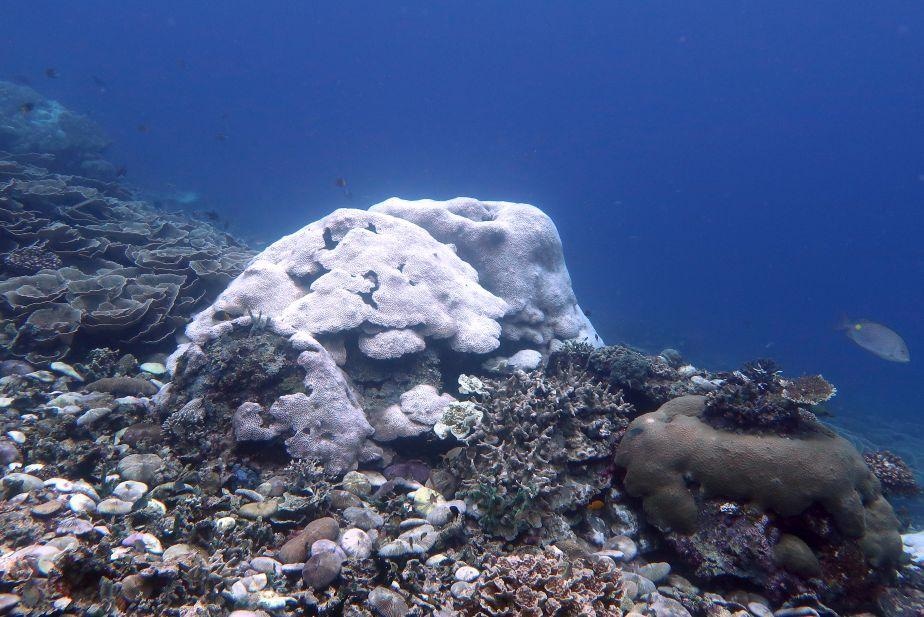Reviewed by Alex SmithFeb 3 2022
An alarming new study has shown that global warming of 1.5°C above pre-industrial levels will be catastrophic for nearly all coral reefs. This includes those which are once thought of as refuges.
 Bleached coral in Indonesia. Image Credit: Maria Beger.
Bleached coral in Indonesia. Image Credit: Maria Beger.
Scott Heron, an associate Professor from James Cook University was part of the study. He stated the research team utilized the latest generation climate model projections to anticipate future thermal exposure of shallow-water coral reefs throughout the world.
We identified thermal refuges—places where it’s thought coral reefs have a good chance of surviving warming oceans due to things like consistent upwelling of cool deep waters.
Scott Heron, Associate Professor, James Cook University
He stated that the researchers discovered that the refuges will offer nearly no escape. Just 0.2%, or one-fifth of 1%, of coral reefs present across the globe are projected to prevent frequent bleaching-level heat stress under a scenario of 1.5°C climate warming.
This means corals worldwide are at even greater risk from climate change than previously thought, especially as limiting warming to 1.5°C is looking increasingly unlikely.
Scott Heron, Associate Professor, James Cook University
He also stated coral recovery after wide thermal stress-induced mortality is based on local conditions. However, science shows it needs at least one decade for coral communities to re-establish ecosystem functions. Heron noted, “Most coral reefs won’t have time to recover between bleaching events.”
Even though small in number, there are a few reef locations that will continue to stay as a result of other factors.
“In addition to locations where heat exposure events will be less frequent, like in French Polynesia and southern Indonesia, there are other ‘hope sites’ that have high variability in temperatures. Corals in these locations, such as the Eastern Pacific, may be better able to cope with temperature extremes,” stated Adele Dixon, lead author of the study from the University of Leeds in the United Kingdom.
Dr Heron added that the researchers wished to emphasize that climate change effects are already affecting ecosystems in several regions of the world and will intensify, even at the 1.5°C of global warming set as a target in international agreements. This includes possible impacts of heat stress in 2022 on the Great Barrier Reef and off Western Australia.
This analysis confirms that significant action on greenhouse gas emissions is urgent and needed this decade. We also need to ramp up local actions to help reefs survive through already predicted impacts. Promoting reef resilience, adaptation to higher temperatures, and facilitating migration will be vital strategies to secure their survival.
Scott Heron, Associate Professor, James Cook University